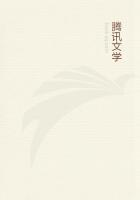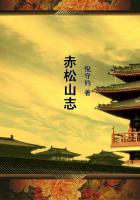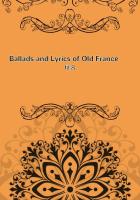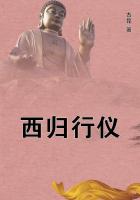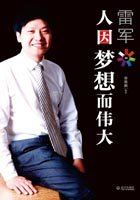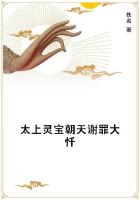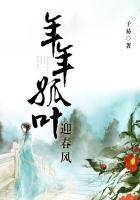Then there is the opposite attack on thought: that urged by Mr. H.G.Wells when he insists that every separate thing is "unique," and there are no categories at all. This also is merely destructive.
Thinking means connecting things, and stops if they cannot be connected.
It need hardly be said that this scepticism forbidding thought necessarily forbids speech; a man cannot open his mouth without contradicting it. Thus when Mr. Wells says (as he did somewhere), "All chairs are quite different," he utters not merely a misstatement, but a contradiction in terms. If all chairs were quite different, you could not call them "all chairs."
Akin to these is the false theory of progress, which maintains that we alter the test instead of trying to pass the test.
We often hear it said, for instance, "What is right in one age is wrong in another." This is quite reasonable, if it means that there is a fixed aim, and that certain methods attain at certain times and not at other times. If women, say, desire to be elegant, it may be that they are improved at one time by growing fatter and at another time by growing thinner. But you cannot say that they are improved by ceasing to wish to be elegant and beginning to wish to be oblong. If the standard changes, how can there be improvement, which implies a standard? Nietzsche started a nonsensical idea that men had once sought as good what we now call evil; if it were so, we could not talk of surpassing or even falling short of them.
How can you overtake Jones if you walk in the other direction?
You cannot discuss whether one people has succeeded more in being miserable than another succeeded in being happy. It would be like discussing whether Milton was more puritanical than a pig is fat.
It is true that a man (a silly man) might make change itself his object or ideal. But as an ideal, change itself becomes unchangeable.
If the change-worshipper wishes to estimate his own progress, he must be sternly loyal to the ideal of change; he must not begin to flirt gaily with the ideal of monotony. Progress itself cannot progress.
It is worth remark, in passing, that when Tennyson, in a wild and rather weak manner, welcomed the idea of infinite alteration in society, he instinctively took a metaphor which suggests an imprisoned tedium.
He wrote--
"Let the great world spin for ever down the ringing grooves of change."
He thought of change itself as an unchangeable groove; and so it is.
Change is about the narrowest and hardest groove that a man can get into.
The main point here, however, is that this idea of a fundamental alteration in the standard is one of the things that make thought about the past or future simply impossible. The theory of a complete change of standards in human history does not merely deprive us of the pleasure of honouring our fathers; it deprives us even of the more modern and aristocratic pleasure of despising them.
This bald summary of the thought-destroying forces of our time would not be complete without some reference to pragmatism; for though I have here used and should everywhere defend the pragmatist method as a preliminary guide to truth, there is an extreme application of it which involves the absence of all truth whatever.
My meaning can be put shortly thus. I agree with the pragmatists that apparent objective truth is not the whole matter; that there is an authoritative need to believe the things that are necessary to the human mind. But I say that one of those necessities precisely is a belief in objective truth. The pragmatist tells a man to think what he must think and never mind the Absolute.
But precisely one of the things that he must think is the Absolute.
This philosophy, indeed, is a kind of verbal paradox. Pragmatism is a matter of human needs; and one of the first of human needs is to be something more than a pragmatist. Extreme pragmatism is just as inhuman as the determinism it so powerfully attacks.
The determinist (who, to do him justice, does not pretend to be a human being) makes nonsense of the human sense of actual choice.
The pragmatist, who professes to be specially human, makes nonsense of the human sense of actual fact.
To sum up our contention so far, we may say that the most characteristic current philosophies have not only a touch of mania, but a touch of suicidal mania. The mere questioner has knocked his head against the limits of human thought; and cracked it.
This is what makes so futile the warnings of the orthodox and the boasts of the advanced about the dangerous boyhood of free thought.
What we are looking at is not the boyhood of free thought; it is the old age and ultimate dissolution of free thought. It is vain for bishops and pious bigwigs to discuss what dreadful things will happen if wild scepticism runs its course. It has run its course.
It is vain for eloquent atheists to talk of the great truths that will be revealed if once we see free thought begin. We have seen it end. It has no more questions to ask; it has questioned itself.
You cannot call up any wilder vision than a city in which men ask themselves if they have any selves. You cannot fancy a more sceptical world than that in which men doubt if there is a world.
It might certainly have reached its bankruptcy more quickly and cleanly if it had not been feebly hampered by the application of indefensible laws of blasphemy or by the absurd pretence that modern England is Christian. But it would have reached the bankruptcy anyhow. Militant atheists are still unjustly persecuted; but rather because they are an old minority than because they are a new one. Free thought has exhausted its own freedom.

